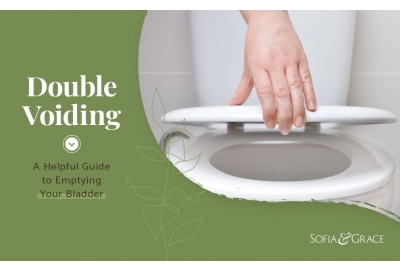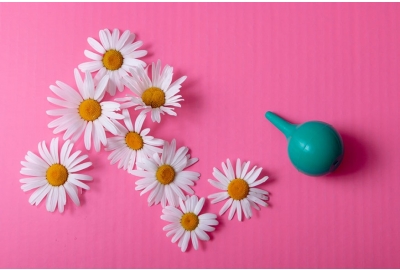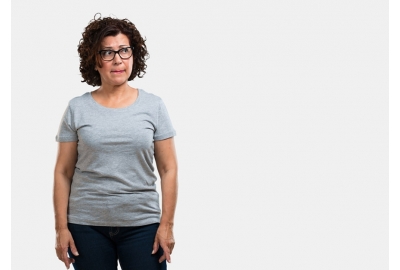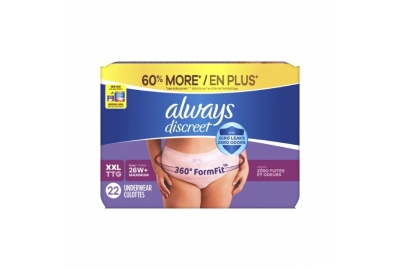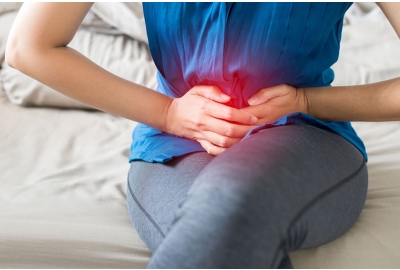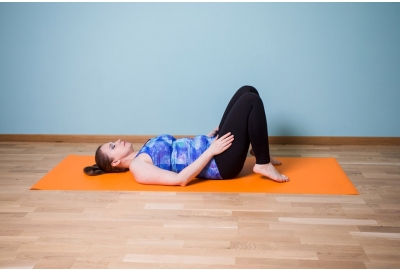Comparing Tena and Depend: Which Brand Is Right for You?
Managing incontinence can already be stressful enough without having to worry about choosing the right bladder leakage products for you. That’s why we launched our series of informative guides, comparing and contrasting our top-selling brands to help you make a decision. Today, we’re comparing two of the biggest names in incontinence underwear: Tena and Depend.
4 years ago
Double Voiding: A Helpful Guide to Emptying Your Bladder
Feel like you never fully empty your bladder? Do you always need to urinate a little bit, no matter how many times you go? Double voiding can help you more fully empty your bladder, cutting down on bathroom trips and improving your overall bladder health. Read on to discover what double voiding is and how to do it, plus more tips for managing incontinence.
4 years ago
4 Expert-Recommended Alternatives to Douching
Few women’s health topics have drummed up as much controversy as douching. Though women have been using vaginal irrigation devices for centuries, they’re now considered an intimate care no-no. Their popularity dates back to the mid-18th century when they were used as a (very ineffective, we might add) form of birth control in addition to a tool for personal hygiene. But this is one case where long-used does not equal time-tested.
4 years ago
Anxiety and Frequent Urination: Understanding the Connection
Anxiety and stress are linked to an array of medical conditions, including incontinence. Anxiety can lead to worsened frequent urination, and frequent urination itself can also cause anxiety, creating a negative cycle that just keeps going. We talked to the experts to learn what the connection is between frequent urination and anxiety — and what to do about it.
4 years ago
Is Incontinence a Normal Part of Aging?
Once you never had to worry about urinating when you didn’t mean to. But as you’re getting older, you might find yourself experiencing bladder leakage more and more. While incontinence does become more common as you age, it isn’t an inevitable part of aging. Read on to get the facts about incontinence aging, and to learn more about how you can treat incontinence.
4 years ago
Always Discreet vs. Depend: Which One Is Best for You?
Shopping for underwear for bladder incontinence can be tough given all the options out there. How do you know which one is right for you? Today, we’re making your decision a little easier by breaking down the comparison between Always Discreet vs. Depend, two of the biggest brands in the incontinence underwear space.
4 years ago
9 Signs You’re Overdoing Kegels
Kegels are a common pelvic floor exercise that strengthen muscles at the bottom of your core. While Kegels have many benefits, like any exercise, it’s possible to have too much of a good thing. Doing too many Kegels can strain your muscles, causing pain, discomfort, and more. Read on to discover what Kegels can and can’t do and what the signs of overdoing Kegels are:
4 years ago
How to Do Reverse Kegels
You have probably heard of Kegel ball exercises, which involve contracting the pelvic floor muscles in order to strengthen them. Kegels are best for weak pelvic muscles that cannot contract as much as you need them to. On the other hand, reverse Kegels are perfect for tight pelvic muscles that need to relax. They focus on releasing tension from the muscles and stretching the whole area out. Reverse Kegels are a great exercise for anyone who suffers from a tight pelvic area, which can lead to pain during sex, cramps, and more. In this guide, we’ll explain how to do reverse Kegels and offer some tips for getting the most out of these exercises.
4 years ago
Sudden Urge to Pee and Can't Hold It? Five Possible Causes
You’re going about your day, minding your business, when you’re suddenly struck out of nowhere with the overwhelming urge to pee. You have to use the bathroom, right now, or else. What causes the sudden urge to pee, and why can’t you hold it? Here are five possible causes you should know about:
4 years ago
The Best Exercises for a Menopause Belly
Thanks to dropping estrogen levels and a reduced metabolism, you might find yourself gaining weight during menopause, especially around your belly. Losing that weight can also become more challenging, and you might find it taking longer than it did previously. (Not to mention, the link between menopause and bloating can make your tummy look even larger.)
4 years ago

